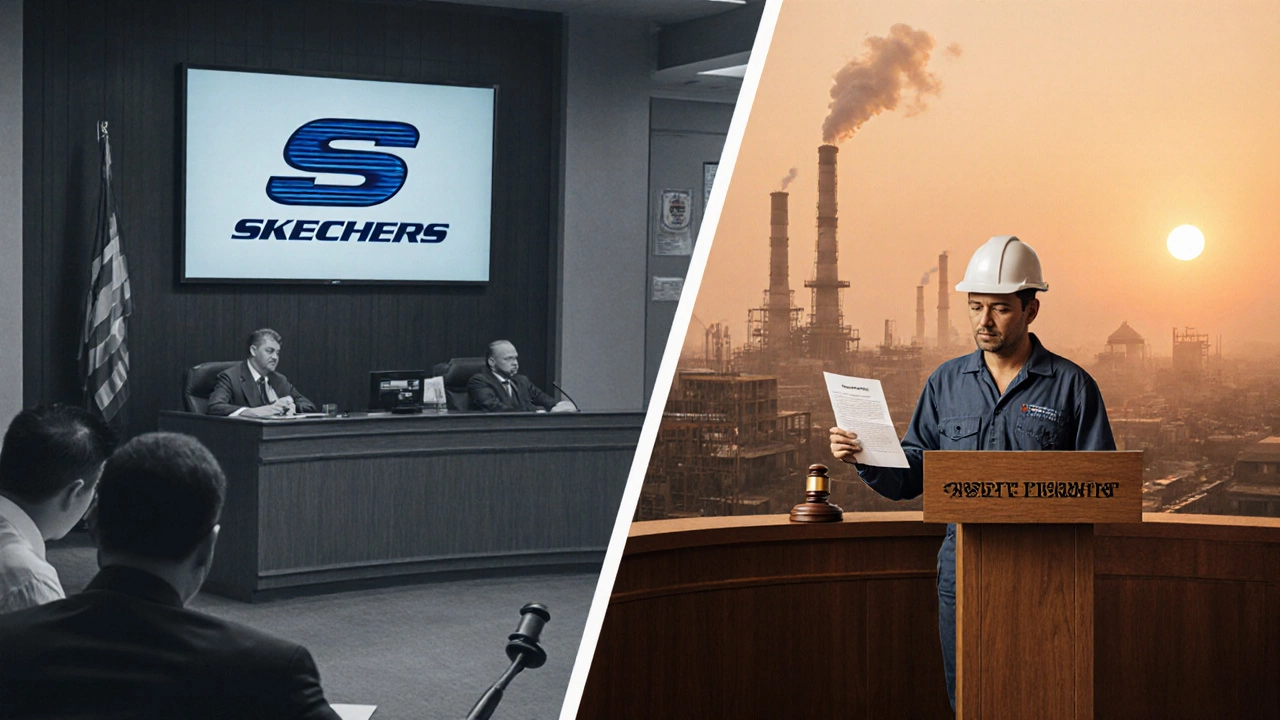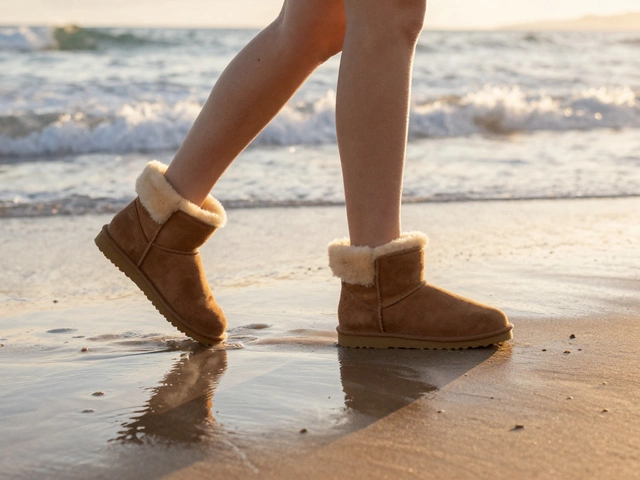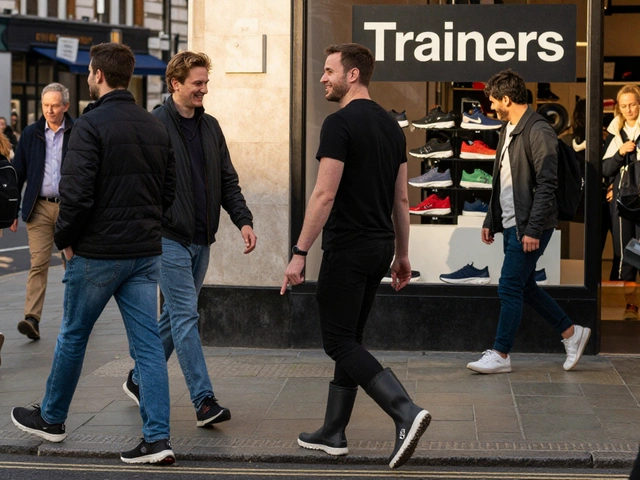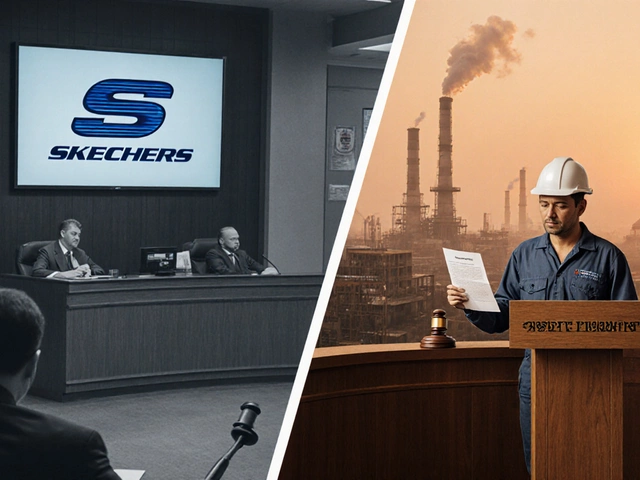Skechers Controversy Checker
Assessment Results
Controversy Timeline
Labor Lawsuit
Underpayment in VietnamGreenwashing Warning
FTC on Eco ClaimsProduct Recall
Children's Shoes SafetyCounterfeit Surge
Safety Risks OnlineEveryone’s talking about the Skechers controversy these days, but what’s really going on behind the headlines? From courtroom battles to accusations of greenwashing, the brand’s recent years read like a case study in modern corporate fallout. Let’s break down the major flashpoints, why they matter to you, and what you can do if you’re trying to decide whether to keep buying those comfy sneakers.
Key Takeaways
- Skechers has faced multiple lawsuits over labor practices, false sustainability claims, and product safety.
- Regulators in the U.S. and Europe have fined the company for misleading advertising.
- Counterfeit versions flood online marketplaces, raising safety and quality concerns.
- Celebrity endorsement deals have sometimes backfired, amplifying public criticism.
- Consumers can protect themselves by checking authenticity tags, reviewing third‑party sustainability ratings, and staying informed about ongoing legal actions.
What Is Skechers?
Skechers is a global footwear company founded in 1992 in Manhattan Beach, California, that produces casual shoes, performance sneakers, and work boots. Over the past three decades the brand has expanded to more than 3,000 stores worldwide and boasts a footprint in North America, Europe, and Asia.
Timeline of Major Controversies
- 2018 - Labor lawsuit in California alleges underpayment of factory workers in Vietnam.
- 2020 - FTC cracks down on “eco‑friendly” marketing, issuing a warning letter about vague sustainability claims.
- 2021 - Consumer Reports identifies safety defects in a line of children’s shoes, prompting a voluntary recall.
- 2022 - Celebrity ambassador scandal when a high‑profile star was caught promoting a sneaker line while previously endorsing a rival brand.
- 2023 - European Union fines Skechers €5million for misleading “Made in Europe” labels on some products.
- 2024 - Massive counterfeit surge on major e‑commerce platforms, linked to substandard materials and faulty soles.
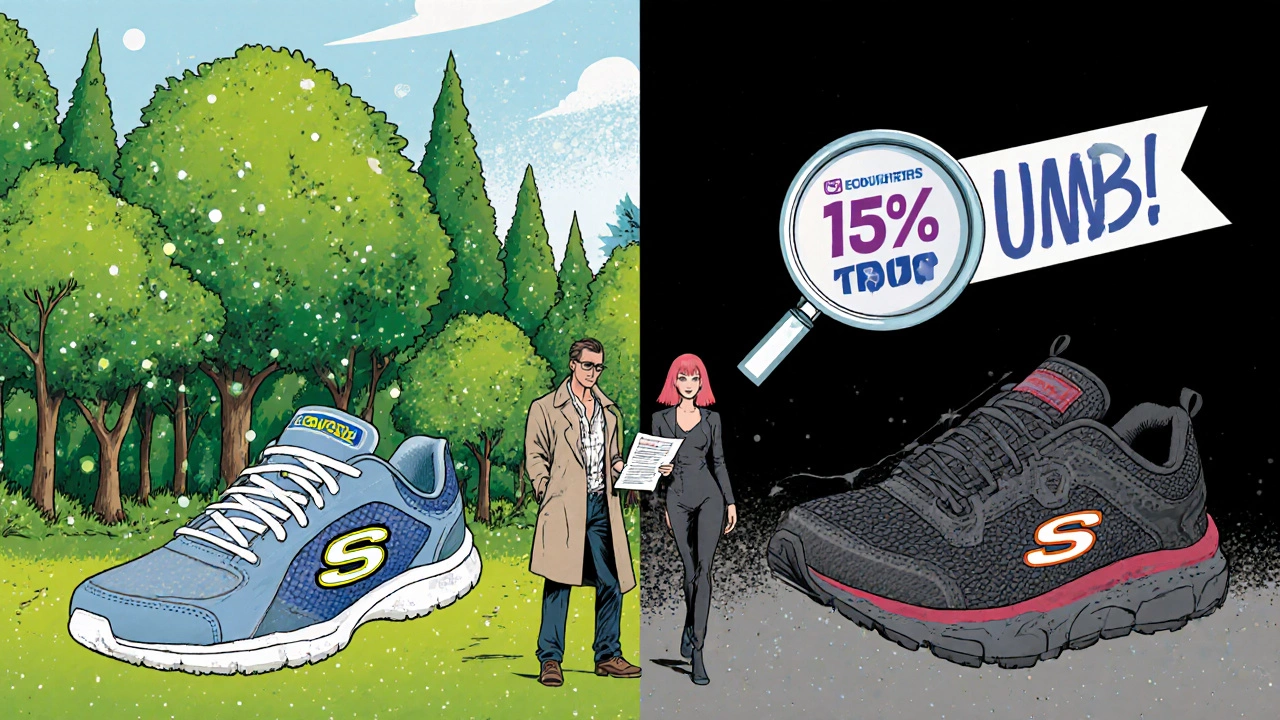
Labor and Wage Disputes
One of the earliest legal challenges involved a labor lawsuit filed by a coalition of workers’ rights NGOs alleging that factories supplying Skechers in Southeast Asia paid wages below local minimums and failed to provide overtime compensation. The case settled in 2019 with a $12million fund for affected workers and commitments to third‑party audits.
The U.S. Federal Trade Commission (FTC) has repeatedly warned Skechers about deceptive advertising, especially around wage‑fairness messaging. While the FTC didn’t levy a formal fine, the agency demanded clearer disclosures in future marketing.
Sustainability Claims and Greenwashing Accusations
In 2020 the brand launched a “EcoStep” line, touting recycled polyester and plant‑based soles. However, an investigative report by a European consumer watchdog found that only 15% of the material was actually recycled, with the rest being conventional petroleum‑based fibers. This mismatch led the FTC to issue a warning letter, calling the eco‑claims “materially misleading”.
Since then, Skechers has published an annual sustainability report detailing carbon‑footprint reductions, water‑usage targets, and third‑party verification by an environmental certification body. The report shows a 10% drop in scope1 and2 emissions between 2021 and 2023, but critics argue that the data lacks transparency around supply‑chain emissions (scope3).
Celebrity Endorsements and Marketing Missteps
Skechers has leaned heavily on high‑profile athletes and entertainers to boost sales. The 2022 partnership with a pop star who simultaneously promoted a competing sneaker brand sparked a social‑media uproar. Fans accused Skechers of “brand‑hopping” and accused the celebrity of compromising authenticity.
Beyond the PR fallout, the FTC flagged several influencer contracts for failing to disclose paid partnerships, violating the “clear and conspicuous” disclosure rules. Influencers later posted retroactive apologies, but the episode added fuel to the broader perception that Skechers often skirts advertising standards.
Counterfeit Market and Product Safety
By 2024, counterfeit versions of Skechers shoes flooded marketplaces like Amazon and eBay. These knock‑offs often use substandard rubber compounds, leading to premature sole detachment and, in extreme cases, foot injuries. In a 2024 consumer‑safety alert, the U.S. Consumer Product Safety Commission (CPSC) warned shoppers to verify authenticity tags before purchasing.
Authentic Skechers pairs feature a QR code on the inner label that, when scanned, confirms the shoe’s serial number on the company’s database. The QR code also links to warranty information and the official retailer list.
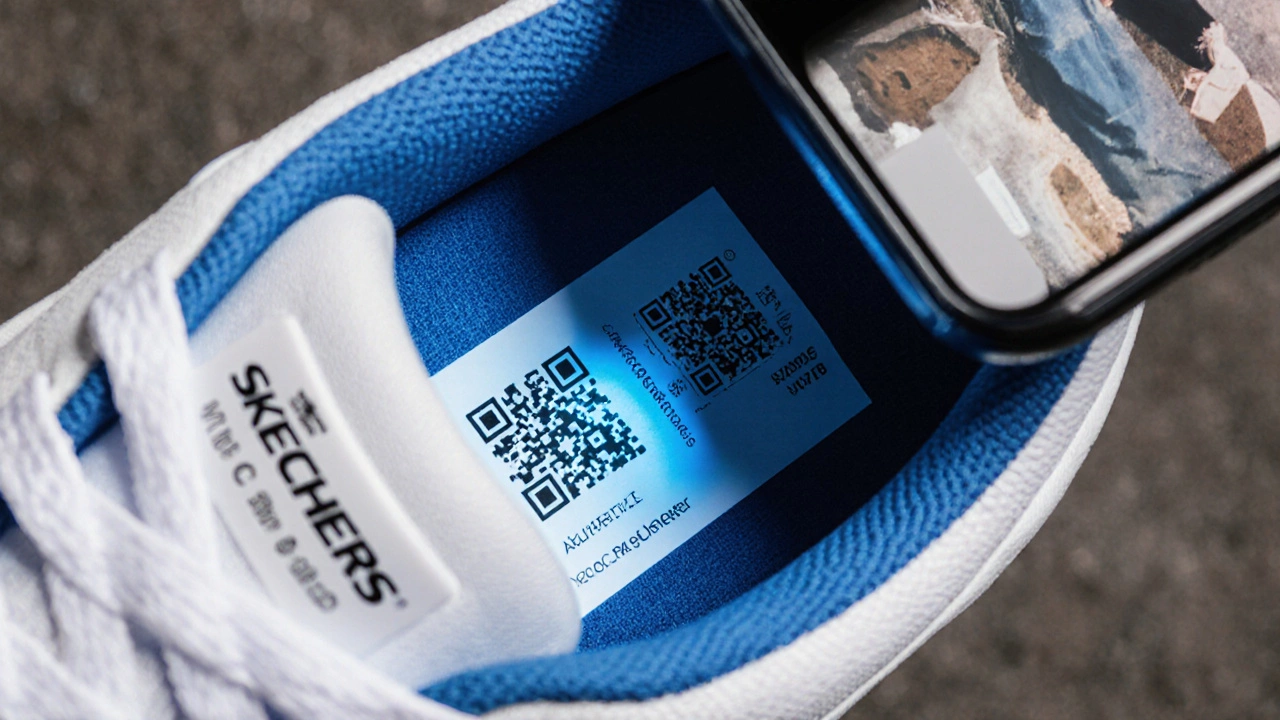
Legal Outcomes and Current Status
Most of the lawsuits have concluded with either settlements or mandated corrective actions. The 2023 EU fine forced Skechers to redesign its “Made in Europe” label, now indicating the exact country of manufacture. The company also agreed to fund an independent audit of its supply chain, scheduled for release in early 2025.
Despite the setbacks, Skechers reported a 4% revenue growth in Q22025, driven largely by its “performance” line aimed at gym‑goers. The brand’s stock price remains volatile, reflecting investor uncertainty over ongoing regulatory scrutiny.
What the Controversy Means for Buyers
If you’re weighing whether to buy a new pair, consider these practical steps:
- Check authenticity: Scan the QR code on the shoe’s inner label or verify the serial number on Skechers’ website.
- Read third‑party reviews: Look for independent sustainability ratings from NGOs like Greenpeace or the Sustainable Apparel Coalition.
- Beware of deep‑discount offers: Extreme price cuts on third‑party sites often signal counterfeit goods.
- Stay updated on recalls: Sign up for CPSC alerts or follow consumer‑rights blogs that track footwear safety.
- Consider alternatives: Brands such as Allbirds and Nike have more transparent sustainability roadmaps, though they come with their own controversies.
Next Steps and Watching the Horizon
Regulators are expected to tighten labeling rules in both the U.S. and the EU in 2026, which could force Skechers to overhaul its marketing language. Meanwhile, consumer advocacy groups are pushing for a public database of verified sustainable footwear, a tool that could make it easier to compare claims across brands.
For now, keep an eye on news from the FTC, CPSC, and major labor‑rights NGOs. Their reports will give you the clearest picture of whether Skechers is genuinely improving or simply shifting its PR strategy.
| Controversy Area | Regulatory Action | Consumer Impact | Brand Response |
|---|---|---|---|
| Labor & Wage | Settlement ($12M) + audit commitments | Improved factory wages, but limited transparency | Third‑party audits, public statement on fair labor |
| Sustainability Claims | FTC warning letter, EU €5M fine | Confusion over eco‑labels, skepticism | Annual sustainability report, greener material targets |
| Celebrity Marketing | FTC disclosure enforcement | Misleading endorsements, trust erosion | Revised influencer contracts, clearer disclosures |
| Counterfeit Products | CPSC safety alert | Risk of injury, brand dilution | QR authentication, retailer verification list |
Frequently Asked Questions
Why were Skechers shoes recalled in 2021?
The recall targeted a line of children’s shoes whose glued soles could detach under normal wear, posing a choking hazard. Skechers voluntarily issued the recall and offered refunds or replacements.
Are Skechers’ eco‑friendly claims legitimate?
Skechers has made progress-its 2023 sustainability report shows a 10% reduction in direct emissions-but third‑party audits reveal that many “eco” lines still contain a high proportion of conventional materials. The claims are partially valid but not as green as marketing suggests.
How can I spot a fake Skechers pair?
Authentic pairs have a QR code on the inner label that links to the company’s database. Look for consistent stitching, proper logo placement, and a matching serial number. If the price seems too good to be true, it probably is.
What penalties has Skechers faced for misleading ads?
In 2023 the European Union fined the company €5million for false “Made in Europe” labels. The FTC also issued a warning letter in 2020 for vague sustainability language, requiring clearer disclosures.
Should I continue buying Skechers?
If you value comfort and price, Skechers still delivers, but stay vigilant: verify authenticity, check third‑party sustainability scores, and watch for any new recalls or regulatory actions.
